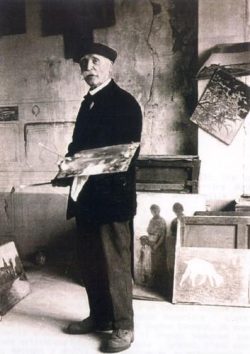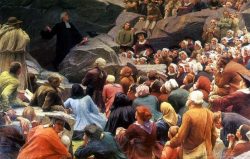Max Leenhardt (1853-1941)
A painter characterised by his attachment to Montpellier and his strong religious faith.
Training at the School of Fine Arts in Paris and his time in Paris
He was born in Montpellier in 1853 in a bank managers’ family, but his artistic call was expressed soon and he went to the School of Fine Arts in Montpellier. He then came to the Paris school in 1921.
Having no financial problems, he had a studio near Montparnasse, exhibited his work every year at the Salon des Artistes français (prize-winner, then unrivalled, and later a member of the jury).
Finally settling down with his family in Montpellier
His wife died while giving birth to their second son, so he decided to go back to his family in Montpellier. He kept exhibiting his work in Paris regularly until he died in 1941.
This tragic event in his family was a turning point in his art. His paintings were heavily influenced by religion, two of his most characteristic pieces were Women prisoners at the Tour de Constance in Aigues Mortes, Heroes of the Freedom of Thought at the Musée du Désert (Desert Museum).
At the time he also represented large historical and mythological scenes, such as Reception of President Sadi Carnot at Montpellier university, and painted many family portraits.
He did some more spontaneous small paintings of vineyards and Mediterranean landscapes at different times of the day, which were markedly under impressionist influence.
An exhibition of the late Max Leenhardt’s work at the museum of Montpellier in 1997 was a great success.
Associated notes
-
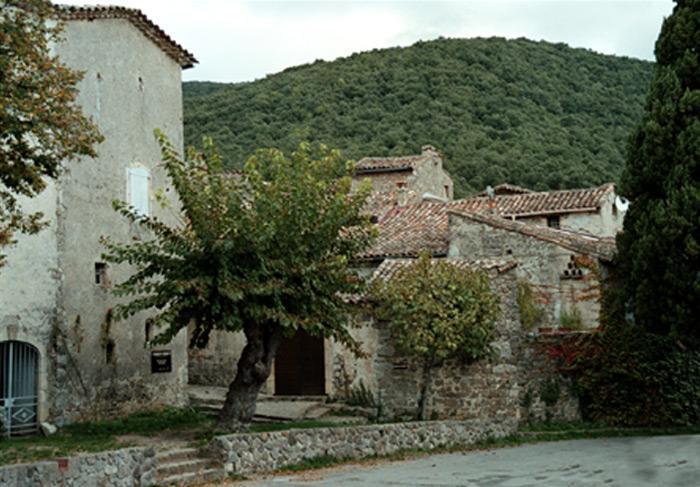
The Désert museum
The “Désert” period in French Protestantism lasted from the Revocation of the Edict of Nantes by Louis XIIV (1685) to the Edict of Tolerance (1787), when Louis XVI restored civil... -
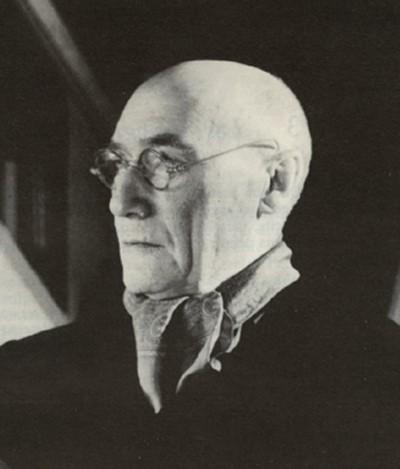
André Gide (1869-1951)
André Gide was one of the most well-known writers of the first half of the XXth century. He was born into a protestant family and was brought up in an... -
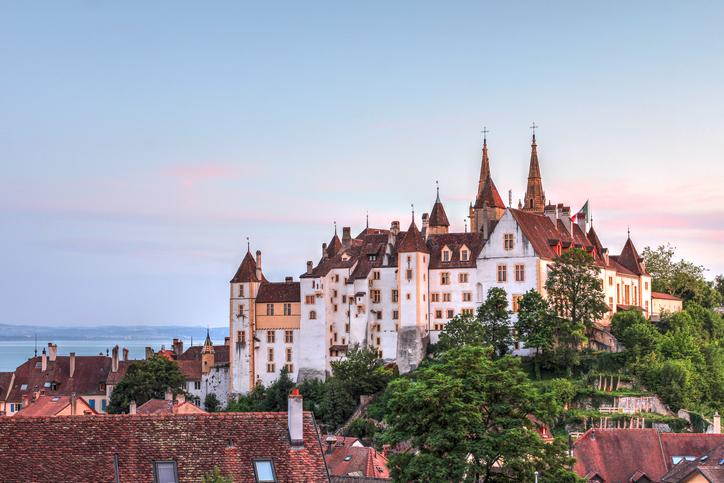
Edmond Jeanneret (1914-1990)
Edmond Jeanneret was a pastor in the Reformed Church of Neuchâtel and particularly ministered in Leysin and Bôle. He was a theologian, a reader of Karl Barth and Dietrich Bonhoeffer,... -
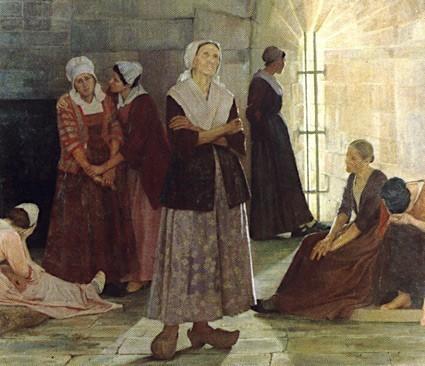
Jeanne Lombard (1865-1945)
Many paintings by Jeanne Lombard refer to the persecution of the Protestants during the Desert era. -
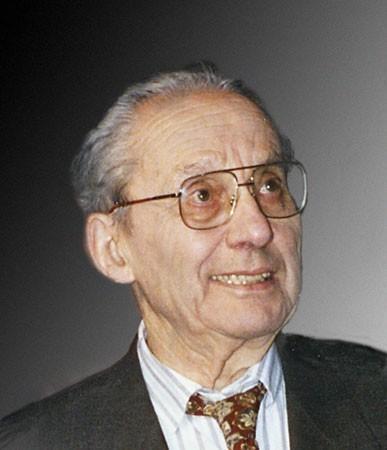
Paul Ricœur (1913-2005)
Paul Ricoeur considered himself to be a philosopher by profession and Christian in his religion. He was thought to be one of the greatest post-war French thinkers. Ricoeur lived a... -
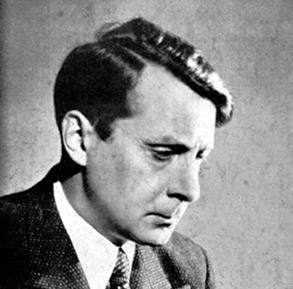
Charles Munch (1891-1968)
Charles Munch was a great French conductor.

